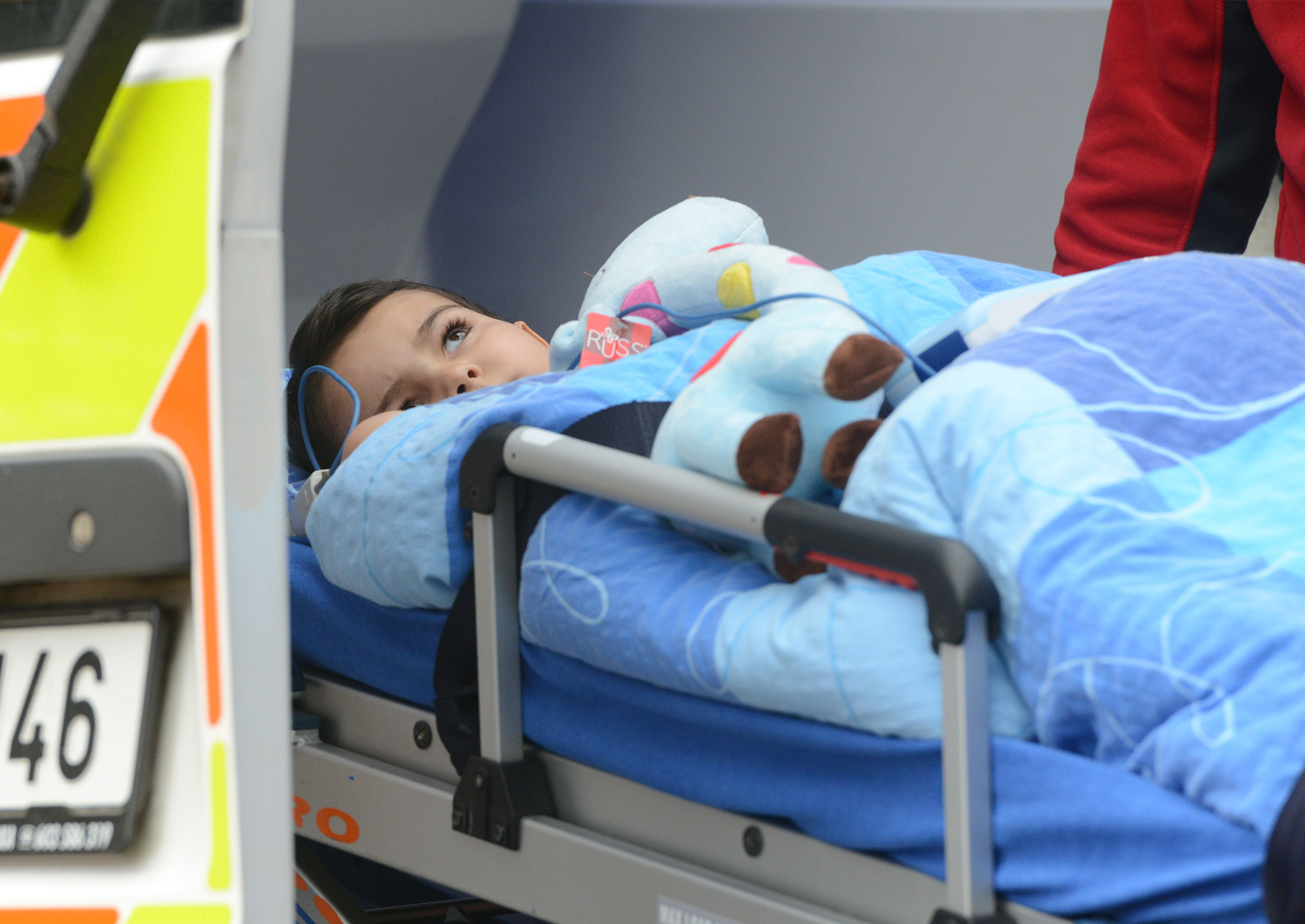Ashya King: The summer of hate experienced by the hospital that treated him shames us all
One letter sent to staff at Southampton General Hospital expressed the hope that the doctor's own children would get cancer and die

Medical stories appear in the press every day. Some are well-founded, written by health correspondents who know how to evaluate clinical studies. Others are little more than re-written press releases, encouraging anxieties among credulous readers.
Doctors and health professionals have long regarded this as a problem, but seldom has a medical story had such damaging and far-reaching consequences as the controversy about a five-year-old boy called Ashya King.
Following surgery to remove a brain tumour last August, Ashya’s doctors wanted him to have follow-up treatment at the hospital in Southampton which performed his life-saving operation. His parents, Brett and Naghemeh King, wanted him to have a treatment called proton beam therapy which isn’t available in the UK, although the NHS sometimes pays for patients to have it abroad. They removed the boy and took him to Spain, a sequence of events which led to the parents’ arrest. Ashya eventually received the treatment at a private clinic in Prague.
Last week, one of Ashya’s doctors appeared on the Today programme and told the other side to this story. Dr Peter Wilson, paediatric intensive care consultant at Southampton General Hospital, sounded shell-shocked as he talked about the hate campaign endured by staff last summer. At one point, so many abusive calls were coming in the hospital shut its switchboard. His voice shaking, Dr Wilson recalled getting a letter from someone who expressed the hope that his own children would get cancer and die.
“The overwhelming sentiment was one of just an absolute outpouring of hatred,” he said in an interview for a documentary shown on BBC South.
The impact of what happened at the hospital – a group of doctors and nurses being put in modern stocks – is still being felt. The abuse never really stopped but it flared up again when Mr King gave interviews last month, telling journalists his son was cancer-free. Members of the public found email addresses and telephone numbers on the hospital website, and bombarded staff with more abuse. They told them they were wrong about Ashya’s treatment and demanded to know how they felt now that he had been “cured” abroad.
Treatment for a medulloblastoma comes in three stages, beginning with the removal of the tumour. After that, the patient is indeed cancer-free, but two further stages are necessary to reduce the chances of the disease recurring. Ashya’s doctors believed his best chance of survival over the next five years lay in conventional radiotherapy and chemotherapy. When his parents disagreed, the medical team referred him to the NHS Specialised Services Proton Clinical Reference Panel, which confirmed their opinion that he was not a suitable candidate for proton beam therapy.
It is very good news that Ashya appears to be in remission following his treatment in Prague, but cancer experts say it is too early to speak of a cure. “The fact he is disease-free at this point is great, but it doesn’t mean he is cured yet,” Professor Karol Sikora, a leading oncologist, told the BBC. But that hasn’t stopped journalists repeating far-fetched claims about the boy’s health. “Ashya’s cured” was the headline in The Sun last month.
Some sections of the media love the idea of a “miracle cure” but the effect on other families with sick children has been dreadful. Lisa Joslin’s nine-year-old son, Jack, had the same kind of tumour removed at Southampton hospital in 2013. When she read about Ashya’s case, Lisa wondered why Jack hadn’t been offered proton beam therapy. “We contacted our consultant and he explained that it wouldn’t have offered any benefit for the kind of tumour Jack had,” she told me on Friday. Happily, Jack is now in remission. Lisa is “over the moon” about the treatment he received, but she’s upset about the way the medical team at Southampton has been treated in the media. “They save so many children’s lives,” she said. “I just think it’s unfair.”
Publicity about this case has damaged trust between doctors and families, adding to the anguish of parents faced with a terrifying diagnosis. Can they trust what doctors are telling them? The fact that proton beam therapy is recommended in only about 1 per cent of cases, according to Cancer Research UK, has barely been mentioned. According to Dr Wilson, the case has put clinicians in an “impossible position” as they try to explain to families why their children are getting a different treatment from Ashya.
No matter how journalists sympathise with the parents of a sick child, they have a duty to discover and report the facts. They also need to consider the impact of sensational reporting on doctors, nurses and other families in a similar situation. No one should get abuse for doing their job, and that’s especially true of dedicated NHS staff trying to save children’s lives.

Join our commenting forum
Join thought-provoking conversations, follow other Independent readers and see their replies